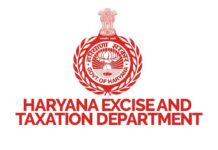Dear All,
Stay updated! Join our Email Newsletter for exclusive Articles, updates, and announcements.
Join our Email NewsletterPlease find below the “Updates that Matter (UTM # 8)”,
| Ø Haryana VAT:-
State VAT v. Builders v. Flat Owners – A Triangular Tussle (A Write-up) Ø Service Tax: Department can’t penalize assessee with demand to recover excess credit claimed by service recipient. |
Ø Service Tax: – Service Tax Return – ST-3 For Oct 13 to March 14 – Available for e-filing.
Ø CL :- Provisions applicable to Deposits / Loans received by Companies w.e.f 1stApril , 2014 |
Ø DVAT: – Soon the Returns might be filed online with Digital Signature. Department hints at parting away with manual submission.
Ø Direct Tax Code: – “Accountant” Definition Includes CS & CWA also. |
- a)Haryana VAT: – The Sales tax thrust on builders and developers have gained drastic momentum post the recent rulings of Hon’ble Supreme Court in L&T Limited v. State of Karnataka (2013-TIOL-46-SC-CT-LB) which in principle accepts the law laid down in earlier judgement in case of Raheja case.
Further how a scheme similar to Delhi VAT’s amnesty scheme might to be useful resort by State Government and beneficial for Trade at large.
Link to the Write-up:- http://goo.gl/k6a1FG
- b)Service Tax: Department cannot raised demand against assessee merely because of excess credit having been taken by service recipient
SOS Enterprise v. Commissioner of Central Excise & Service Tax, Rajkot [2014] 43 taxmann.com 259 (Ahmedabad – CESTAT)
- c)Service Tax: – Service Tax Return (ST-3) for Oct ’13 to March’14 period is now available for e-filing by the assessees in both offline and online version. The last date for filing the returns for the said period is 25th April, 2014.
- d)CL: – Companies, other than ‘eligible companies’ i.e. a public company having a net worth of not less than Rs. 100 crore or a turnover of not less than Rs. 500 crore, cannot accept deposit from public. It can do so only from its members after seeking permission of its shareholders at a general meeting. No such approval was required under the Companies Act, 1956.(Section 73: Prohibition on acceptance of deposits from public & Section 76: Acceptance of deposits from public by certain companies read with Rule No. 2(1)(e))
In view of the above provision small companies cannot take any loans / deposit from individual, firm, HUF. Any amount received from the Members or relative of Director in a Private Company shall also be considered as deposits. Loans from Director can be taken with an undertaking that the Director has not borrowed the funds.
Now the Act prohibits grant of any loans, giving of guarantee or providing of any security to the directors or any other person in whom the director is interested; otherwise than for given exemptions. Even the provision of seeking the approval of the Central Government for such purpose has been deleted. (Section 185: Loan to Directors, etc)
With the change as stated above, the deposits lying outstanding as on 1st April 2014 to be declared to ROC (within 3 Months – Section 74(1)(a)) & to be paid in one year or on maturity whichever is earlier. {As per Section 74(1)(b) of Companies Act,2013 }
- e)DVAT: Soon the returns and other filings with Delhi VAT department may be freed from the manual submission.
Lt. Governor of the National Capital Territory of Delhi, hereby extends the provisions contained In the Information Technology Act, 2000 (21 of 2000), and the rules made and directions given under the Information Technology Act, 2000 including the provisions relating to digital signatures, electronic governance, attributation, acknowledgement and dispatch of electronic records secure electronic records and secure digital signatures and digital signature certificates, to the procedures under theDelhi Value Added Tax Act. 2004 and Delhi Value Added Tax Rules, 2005. This notification shall come into force with effect from on the date of its publication in the Delhi gazette.
No. F.3 (21)/Fin (Rev-I)/2013-14/dsvi/347 dated 26th March, 2014
- f)DTC :- As per Section 314(2) of the Direct Taxes Code 2010:-
“Accountant” means a chartered accountant within the meaning of the Chartered Accountants Act, 1949 and includes any person who is entitled to act as an auditor of Companies under sub-section(2) of Section 226 of the Companies Act, 1956.
As per Section 320(2) of the New Code, 2013:-
“Accountant” means a chartered accountant within the meaning of the Chartered Accountants Act, 1949 and who holds a valid certificate of practice under sub-section (1) of section 6 of that Act, and shall include-
(i) a company secretary within the meaning of the Company Secretaries Act, 1980;
(ii) a cost accountant within the meaning of the Cost and Works Accountants Act, 1959; or
(iii) any person having such qualifications as the Board may prescribe, for the purposes specified in this behalf.
Regards,
CA.Ankit Gulgulia (Jain)|B.COM(H), C.A, C.IFRS, C.B.V
Direct|+9811653975 |011-27356431|011-23642055|
Email| ankit@gravita.in
Indirect taxation | Transfer Pricing | Corporate Laws | Litigation | Assurance
311, 3rd Floor, D-Mall, Netaji Subhash Place, Pitampura, New Delhi-110034
Website | www.charteredonline.in
| Please consider your environmental responsibility. Before printing this e-mail message, ask yourself whether you really need a hard copy. |
Disclaimer: – The above information/memo is purely for information purpose you should check other information sources before taking any action based on any of the content in this memo. Neither the authors nor website hosting the memo make any warranty as to the quality or currency of the information contained in any of the site’s articles.
IMPORTANT: The contents of this email and any attachments are confidential. They are intended for the named recipient(s) only. If you have received this email by mistake, please notify the sender immediately and do not disclose the contents to anyone or make copies thereof.
Related Tags UTM
Stay updated! Join our Email Newsletter for exclusive Articles, updates, and announcements.
Join our Email Newsletter



